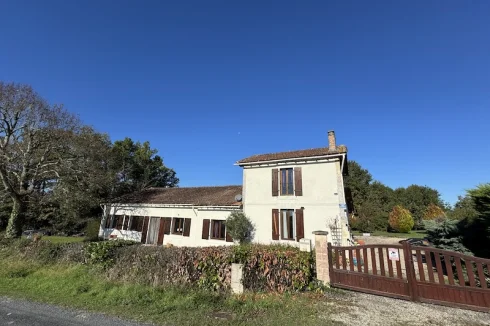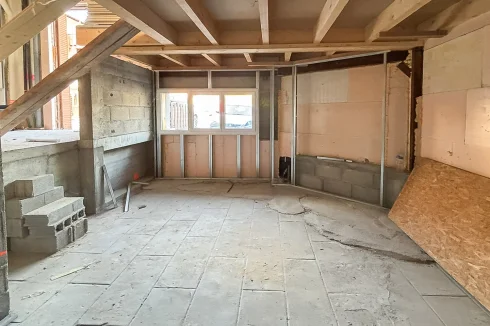Moving Household Goods to France
Monday 11 July 2022
Now that the UK has left the EU, what are the customs rules for moving your possessions to a property in France? UPDATED 21st Oct 2023,
As the UK is no longer a member of the European Union, some goods now need to be declared to French customs and customs duties and VAT paid on some items.
The rules differ, depending on whether you are moving goods to your main home to France or you are moving items to a second home in France.
These are also early days with the adoption of customs practices from the UK to France, and the evidence to date indicates that even customs officials are having to learn the ropes.
Moving Goods to Main Home in France
If you are relocating to France or you live in France and you are bringing goods to your home, you are in principle exempt from paying taxes on personal goods that you import.
The exemption applies if you have been living in the UK (or another country outside the EU) for at least 12 months and you have owned the goods you wish to import for at least 6 months before the shipping date.
You need to bring over the belongings you wish to import within 12 months of relocating to France, but they can be brought over in one or multiple trips.
You cannot sell or rent items for one year after importing them to France, but just how even the all-seeing eye of the French State is able to enforce this rule we can only wonder at!
When goods are being transported you must provide two copies of an inventory of goods and furniture listing their value and a signed declaration.
The level of details required by French customs officials does vary, as some of you are reporting that merely listing the boxes by category of goods - kitchen equipment, garden equipment etc - has been sufficient.
You also need to produce documents proving you have lived in the UK and you are moving to France. A rates or tax bill should be sufficient for the former, whilst for the latter a copy of the property deeds/notaire certificate of ownership and utilities contract/bill would suffice.
Some of you have mentioned to us the need for a 'certificate' as confirmation of change of address, a requirement that seems to originate from the website of the French customs authority (Douane) which refers to a 'change of residence certificate'. However, when we contacted the French Consulate in London, they expressed a profound lack of interest in issuing such a form and referred us to the need for a visa. Moreover, the French version of the Douane website merely states that you provide 'tout document pouvant démontrer le changement de résidence'.
Strictly speaking, you may also need documentation (such as receipts) proving that you have owned the goods you wish to import for more than six months. You can more easily accomplish this by a signed statement, called a 'certificat de non-cession' that confirms it is all your own property. There are many examples of this form on-line used by removal companies. Once again, provided all you are bringing over to France are a standard load of household possessions, and you are self-evidently moving home, customs officials will not insist on a receipt for every item. Only if you have a highly valuable piece might it be useful to have some evidence of ownership with you.
Border officials in France have available x-ray equipment to examine a vehicle if necessary, so the contents of your load can be examined quite easily if they decide to do it.
Some products are excluded from the tax exemption. These include products that are normally for commercial use such as raw materials, professional goods, alcohol or tobacco.
Alcohol and tobacco duty-free limits per person aged 17+ from the UK to France are as follows:
- Cigarettes - 200 cigarettes (1 carton)
- Cigarillos- 100 cigarillos
- Cigars -50 cigars
- Smoking tobacco -250 grams
- Still (non-sparkling) wine - 4 litres
- Beer - 16 litres
- Beverages with more than 22% ABV - 1 litre
- Beverages with up to 22% ABV - 2 litres
Our guide to customs rules and procedures for importing a vehicle can be found at Importing a Vehicle to France.
There are particular controls on the importation of plants and plant products which you can find at Export plants and plant products from Great Britain and Northern Ireland. which apply equally to visitors and second-home owners.
We have also published a piece on bringing pets to France, which you can find at Brexit: Bringing Pets to France, which again also apply equally to visitors and second-home owners.
Moving Goods to a Second Home in France
Customs duties and VAT must be paid on goods being brought permanently to a second home in France, as the Douane website confirms:
'Les biens destinés à l'aménagement d'une résidence secondaire ne sont plus admis en franchise de droits de douane et de TVA. Vous devez acquitter le droit de douane, la TVA et toute taxation complémentaire éventuelle sur la totalité de votre déménagement vers votre résidence secondaire.'
However, when travelling into France in person you may bring personal effects that are not subject to VAT. There is no specific allowance for this except that the “nature or the amount of the goods in the baggage must not imply commercial purposes”. So there is a fair bit down to the discretion of the customs official at the port, although the evidence to date (in the middle of a pandemic) suggests a light touch is being applied.
Separately, under the Brexit agreement, UK nationals have an allowance against duties (but not VAT) of €1,200, provided the goods originated in the UK or EU. You may be required to provide proof of origin and value.
More specifically, there are personal allowances of up to €300 per adult if travelling by car or train that do not have to be declared at customs. This rises to €430 for passengers arriving by sea or air. Children have a personal allowance worth €150.
Goods in excess of these limits must be declared and you will then be charged 20% VAT on the total value above the threshold, plus customs duties if they apply.
In this case, a verbal declaration is sufficient at customs. Goods worth over €1,200 and made in the UK may still be exempt from customs duties but written proof of their origin must be provided.
When goods are being transported you must provide two copies of an inventory of goods and furniture listing their value, documents proving you have a residence in France, and a signed declaration. You can put your own valuation on your goods and it is down to the customs official whether to accept it. We have not heard any reports of them refusing to do so.
You can also declare goods with French customs up to two days in advance online.
Goods that you have inherited may be exempt from taxes and fees as long as you are moving them to France within two years of receiving them. You will need to provide proof from a notary that this is the case.
There is a form to complete for tools, household and sports equipment etc being brought over to France for temporary use (régime de l'admission temporaire) and on which no taxes should be payable. You can find it at Document d'accompagnement en cas de déclaration verbale pour l'admission temporaire (Formulaire 15678*01) . Consumables are specifically excluded as items for temporary use. If the amount such temporary goods appears to border officials to be excessive, some readers have reported customs demanding a deposit, equivalent to the duty and taxes, returned when you return from France. You will be permitted to keep the temporary goods in France for the duration of your visa.
Household goods you cannot bring to France
Some household goods cannot be brought from the UK to France. Normal customs restrictions apply banning dangerous and illegal items – but transporting houseplants may also prove complicated. The importation of meat and milk based products in any form is prohibited, except for infant food.
To import plants to France from the UK you must obtain a phytosanitary certificate from the Veterinary and Phytosanitary Border Inspection Office (SIVEP). Exceptions can be made for plants in small quantities in your personal baggage and for non-commercial purposes.
The definition of “small quantities” is not specified.
Removal Companies
If you are bringing a large quantity of goods to France or goods that are very valuable, you are likely to be engaging a removal company.
Most removal companies will manage the paperwork for customers and are experienced at passing between customs in the UK and France smoothly. However, some companies in the UK have yet to come to grips with the change in procedures and reports we have received indicates that some of them are not properly informed.
More Information
For more information, call the French customs helpline on 0 800 94 40 40 from France or +33 1 72 40 78 50 from overseas.
There is also a guide provided by the Douane, and written in both French and English, that you can find at Brexit Guide for Travellers.
You can also contact us at: [email protected].
Subscribe to www.france-insider.com to get in-depth news on French property ownership and living in France.
Thank you for showing an interest in our News section.
Our News section is no longer being published although our catalogue of articles remains in place.
If you found our News useful, please have a look at France Insider, our subscription based News service with in-depth analysis, or our authoritative Guides to France.
If you require advice and assistance with the purchase of French property and moving to France, then take a look at the France Insider Property Clinic.





